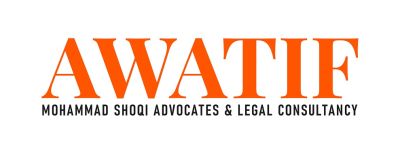In today's digital age, the UAE, like many other nations, deals with the challenges of rumour spread and the distribution of false information, especially online.
Recognizing the potential threats posed by such activities, the UAE has established a comprehensive legal framework that empowers authorities to combat the spread of rumours and false information.
This article explores the legal foundations and responsibilities related to rumour control in the UAE using both the UAE Federal Decree-Law No. 34/2021 (Cybercrime Law) and the Federal Decree-Law No. 31/2021 (Penal Code).
UAE Cybercrime Law:
The UAE Cybercrime Law addresses issues related to rumour spread and the distribution of false information in the digital world. It prepares authorities with the tools required to combat individuals and entities engaged in these activities. Several articles within this law specifically address rumour control and the legal consequences associated with spreading false information.
Defining Rumours: Article 20 of the UAE Cybercrime Law provides a comprehensive definition of rumours as "false information or news distributed by any method of publication, distribution, or circulation, with the intention of damaging the public order or public morals of the state."
Furthermore, Article 20 of the Cyber Law explicitly prohibits the spread of rumours within the UAE. It stipulates those individuals who intentionally spread false information or rumours, whether through electronic means or other methods, with the aim of harming public order or morals, are subject to legal action.
Punishments for Rumour Spread: The UAE Cybercrime Law outlines the disciplinary measures for individuals found guilty of spreading rumours. Those convicted can face imprisonment for a minimum of one year and a fine of no less than AED 250,000. In severe cases, such as those resulting in significant harm or disruption, the penalties can include imprisonment for up to five years and a substantial fine ranging from AED 500,000 to AED 1,000,000. These stringent penalties underscore the UAE's commitment to addressing rumour spread with the utmost seriousness.
Responsibility of Social Media Platforms:
Article 52 of the Cybercrime Law recognises the pivotal role played by social media platforms and website administrators in the propagation of rumours and false information, and places responsibility on these platforms.
They are mandated to promptly remove or block access to any content that violates the law. Failure to do so can result in significant penalties against the platform itself, ensuring that online spaces are not misused for rumour dissemination.
The law encourages individuals to take an active role in rumour control. Article 54 allows individuals to report rumours and false information to the authorities. Once reported, the relevant authorities are empowered to take the necessary legal actions, fostering a sense of collective responsibility in combating rumour spread.
Moreover, recognizing that rumour spread can have international implications, Article 60 of the UAE Cybercrime Law allows for international cooperation in addressing such issues.
Combining Laws: The UAE Penal Code
In addition to the UAE Cybercrime Law, the UAE Penal Code contains provisions that further strengthen the efforts to prevent rumour spread.
Federal Decree-Law No. 31/2021 on the Issuance of the Crimes and Penalties Law, for instance, includes Article 217, which imposes strict penalties, including imprisonment and substantial fines, against individuals who distribute or publish false or malicious news, information, or rumours. These penalties are especially severe when such actions disturb public security, damage the public interest, or incite public opinion against state authorities or establishments.
Furthermore, Articles 425 and 426 of the Penal Code address defamation and insults, providing for jail sentences and fines in cases where individuals publicly defame or insult others, particularly public officials or those serving in public offices. These provisions underscore the UAE's commitment to protecting the reputation and honour of individuals and institutions.
Conclusion
Such a legal framework places significant responsibility on individuals, organizations, and online platforms to ensure that they do not contribute to the spread of rumours or false information that could harm public order or morals, with penalties in place and a clear message about the importance of responsible information sharing and the legal consequences for those who engage in rumour mongering.









